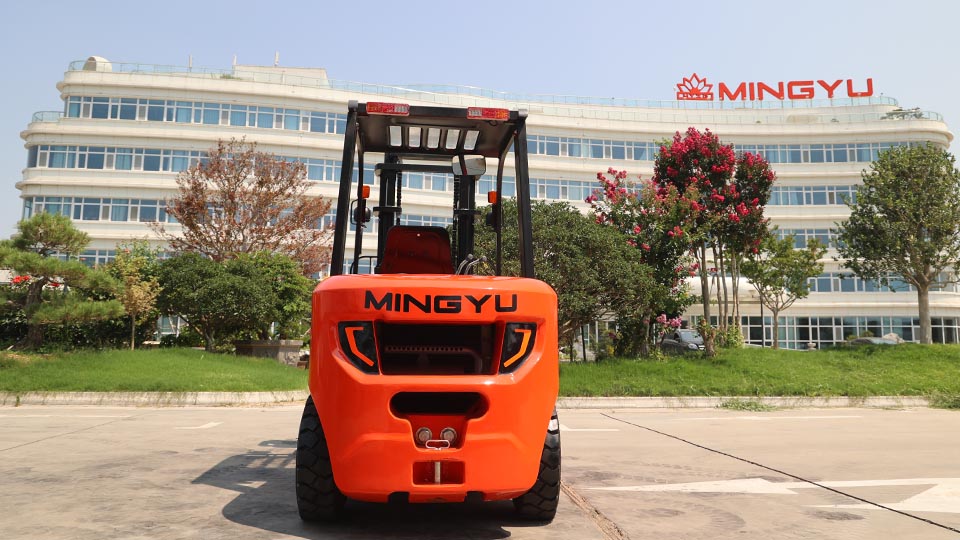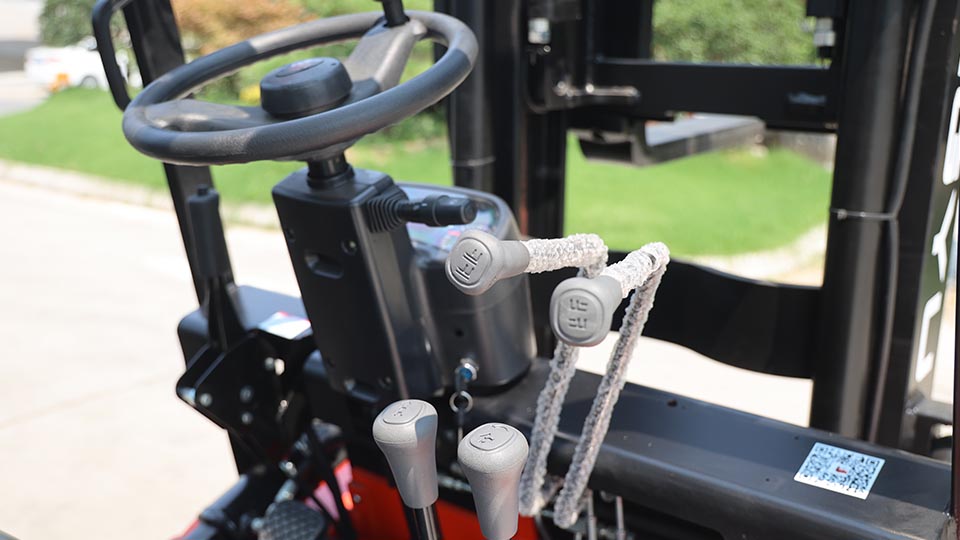
Understanding Class 2 Forklifts: An Essential Guide
For warehouses and distribution centers, space is a premium. The ability to store more inventory in a smaller footprint directly impacts profitability. This is where Class 2 forklifts, also known as electric narrow aisle trucks, become an invaluable asset. Unlike their larger, more general-purpose counterparts, these machines are specifically engineered to maximize vertical storage and operate with surgical precision in confined spaces. Opting for a Class 2 forklift isn't just a choice; it's a strategic decision to enhance efficiency, safety, and capacity in high-density environments.
What Defines a Class 2 Forklift?
Class 2 forklifts are a specific classification of material handling equipment defined by the Occupational Safety and Health Administration (OSHA). The key characteristics that set them apart are:
Electric Power: They are exclusively powered by electric batteries, which makes them ideal for indoor use. This eliminates the harmful emissions and noise associated with internal combustion (IC) engines, contributing to a cleaner, quieter, and safer work environment.
Solid/Cushion Tires: These forklifts are equipped with solid, non-pneumatic tires, making them perfect for smooth, indoor surfaces like concrete warehouse floors.
Narrow Aisle Design: The most defining feature is their design for narrow aisles, typically 10.5 feet or less. Some very narrow aisle (VNA) models can operate in aisles as small as 5 to 7 feet. This is their primary function and the source of their immense value.
Specialized Operator Positioning: Operators often stand or ride on a platform, which allows for quick on-and-off access and provides excellent visibility when working in tight spaces.
Why Choose a Class 2 Forklift? The Core Advantages
The decision to invest in a Class 2 forklift hinges on several key benefits that directly address the challenges of modern warehousing and logistics.

1. Unmatched Space Optimization
This is the number one reason to choose a Class 2 forklift. They are designed to operate in narrow aisles, which allows you to install more racking and shelving in your existing facility. By reducing the width of your aisles, you can dramatically increase your storage density without the need for costly building expansion. This means you can store more products per square foot, a crucial factor for businesses looking to grow their inventory or streamline their operations.
2. Enhanced Vertical Storage Capacity
Beyond just fitting into narrow spaces, many Class 2 models are built to reach impressive heights. Turret trucks, for instance, can lift loads up to 40 feet or more, enabling you to utilize the vertical cube of your warehouse to its fullest potential. This is a game-changer for businesses with high-stacking requirements, such as those in the food and beverage, pharmaceutical, and retail industries.
3. Increased Productivity and Efficiency
The design of Class 2 forklifts is centered on efficiency. Their superior maneuverability and smaller turning radius allow operators to navigate tight corners and congested areas with ease, reducing travel time and improving picking speed. Certain models, like order pickers, lift the operator to the product, enabling faster, more accurate picking of individual items, which is essential for e-commerce and order fulfillment operations.
4. Improved Safety and Ergonomics
The electric power and solid tires of Class 2 forklifts make them a safer option for indoor use. They produce no hazardous fumes and operate with less noise, which reduces environmental impact and operator fatigue. The compact design and precise controls also minimize the risk of accidents and damage to products and racking. Many models feature ergonomic designs and safety systems, such as stability controls and load sensors, to further protect the operator and the load.
5. Lower Operating Costs
Electric forklifts typically have lower maintenance costs compared to their IC counterparts. They have fewer moving parts and don't require oil changes, spark plugs, or other routine engine maintenance. Additionally, the cost of electricity is often less volatile and more predictable than the cost of gasoline or propane, leading to reduced fuel expenses over time. This makes them a more economical choice in the long run.
A Closer Look: Types of Class 2 Forklifts
The term "Class 2 forklift" is a broad category that includes several specialized machine types, each with a unique purpose.
Reach Trucks
Reach trucks are perhaps the most common type of Class 2 forklift. Their key feature is a pantograph mechanism that allows the forks to extend forward from the mast, enabling the operator to retrieve or place a pallet in deep-reach racking without moving the entire truck. They are ideal for high-density storage facilities and are known for their high lift heights.

Order Pickers
Also known as order selectors, these machines are designed specifically for piece-picking operations. Instead of lifting a full pallet, the operator rides on a platform that lifts with the forks to the desired rack level. This allows them to manually select individual items from shelves and place them on a pallet. Order pickers are indispensable for businesses that fulfill individual customer orders from tall shelving.
Turret Trucks
Turret trucks, or Very Narrow Aisle (VNA) forklifts, are the ultimate space-saving solution. They are designed for the narrowest of aisles and feature forks that can pivot and rotate 180 degrees. This allows them to pick and place pallets on either side of the aisle without the need to turn the entire truck. This advanced maneuverability maximizes storage density by allowing for minimal aisle width.
Side Loaders
While less common, side loaders are a type of Class 2 forklift specifically designed to handle long and bulky loads, such as lumber, pipes, or steel sheets. They load and unload from the side, which allows them to navigate narrow aisles with long loads without the risk of swinging into racking or other obstacles.
Name: selena
Mobile:+86-13176910558
Tel:+86-0535-2090977
Whatsapp:8613181602336
Email:vip@mingyuforklift.com
Add:Xiaqiu Town, Laizhou, Yantai City, Shandong Province, China